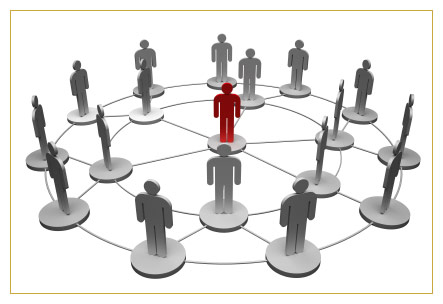Here comes everybody
 Crowdsourcing is a distributed problem-solving and production model. In the classic use of the term, problems are broadcast to an unknown group of solvers in the form of an open call for solutions. Users—also known as the crowd—typically form into online communities, and the crowd submits solutions. The crowd also sorts through the solutions, finding the best ones. These best solutions are then owned by the entity that broadcast the problem in the first place—the crowdsourcer—and the winning individuals in the crowd are sometimes rewarded. In some cases, this labor is well compensated, either monetarily, with prizes, or with recognition. In other cases, the only rewards may be kudos or intellectual satisfaction. Crowdsourcing may produce solutions from amateurs or volunteers working in their spare time, or from experts or small businesses which were unknown to the initiating organization.
Crowdsourcing is a distributed problem-solving and production model. In the classic use of the term, problems are broadcast to an unknown group of solvers in the form of an open call for solutions. Users—also known as the crowd—typically form into online communities, and the crowd submits solutions. The crowd also sorts through the solutions, finding the best ones. These best solutions are then owned by the entity that broadcast the problem in the first place—the crowdsourcer—and the winning individuals in the crowd are sometimes rewarded. In some cases, this labor is well compensated, either monetarily, with prizes, or with recognition. In other cases, the only rewards may be kudos or intellectual satisfaction. Crowdsourcing may produce solutions from amateurs or volunteers working in their spare time, or from experts or small businesses which were unknown to the initiating organization.
As of the beginning of 2010 the entirety of Wikipedia represents about 100 million hours of human thought. Americans alone watch 200 BILLION hours of television per year. That’s 200,000,000,000 hours. Or 2,000 Wikipedias per year.




